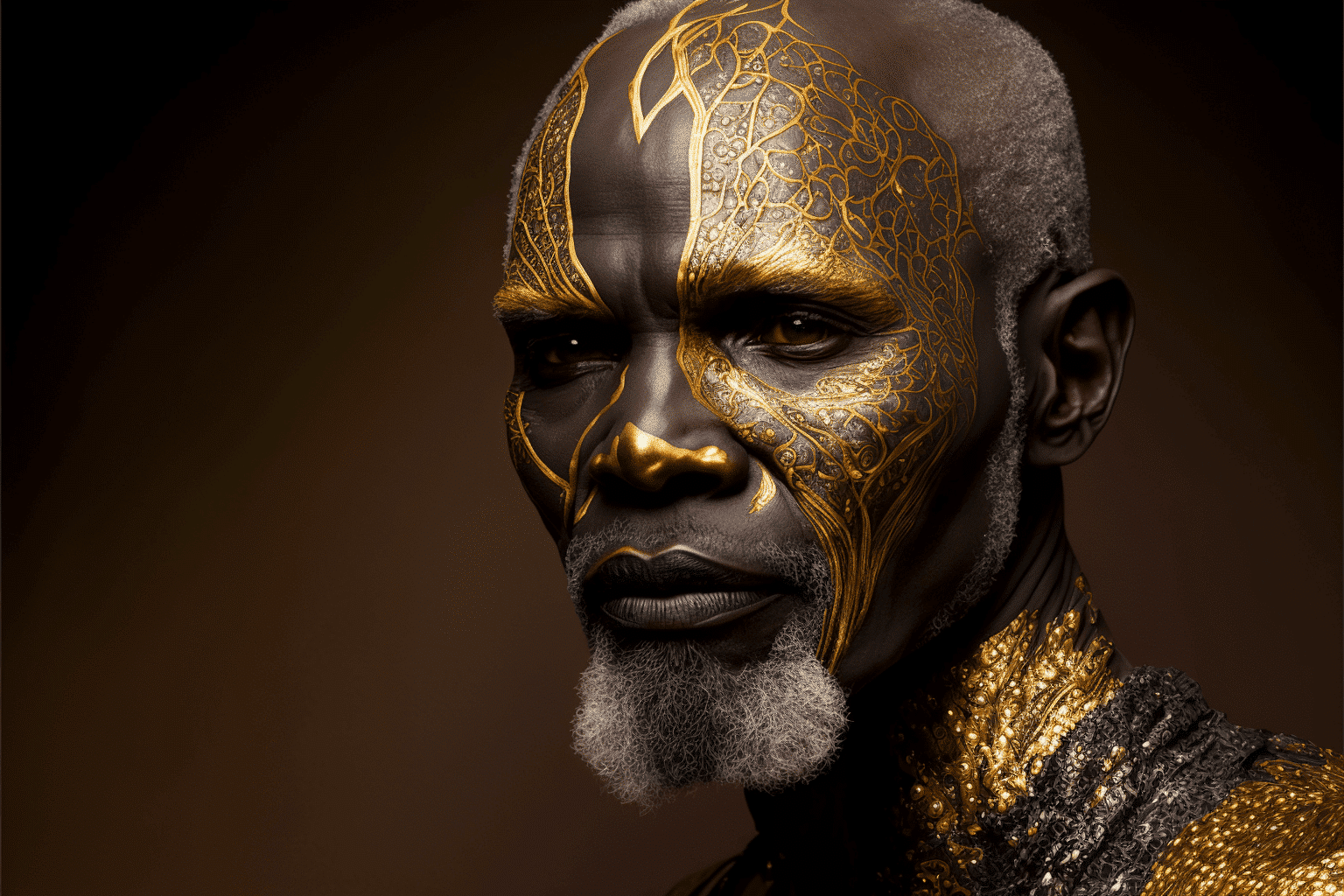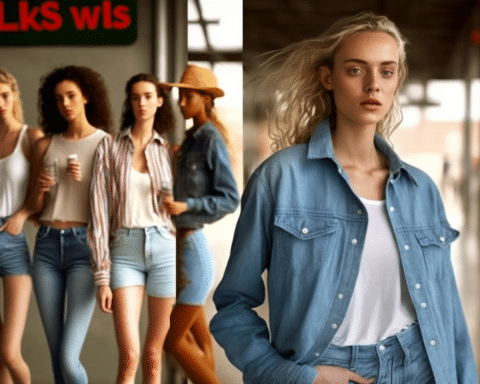Artificial intelligence (AI) generated art has sparked debate, but Nigerian filmmaker and artist Malik Afegbua argues that it can inspire us to improve the real world and create more stylish options for older people.
His images, which resemble fashion runway photos, are actually the product of his imagination and AI software, featuring older models in fashionable attire.
After sharing them on social media, Afegbua received recognition from Oscar-winning costume designer Ruth Carter, who praised the work on Instagram.
The Style
Afegbua’s series of images, titled “Fashion Show For Seniors,” has garnered widespread attention, accumulating over 100,000 likes on social media.
While the success of the project suggests it has had a real-world impact, concerns remain about the potential impact of computer-generated art on human creativity and ethical considerations.
Despite these concerns, Afegbua approaches the topic thoughtfully and with nuance.
How it all started
As the Zoom interview with Afegbua begins, he is in his home office in Lagos, Nigeria.
Suddenly, his two-year-old son interrupts, seeking his attention.
Afegbua expresses pride in his son’s technical abilities, noting that he already knows how to use mobile phones and iPads at such a young age.
It becomes evident that Afegbua is passing down his passion for technology and art to his son, but what led this business school graduate to pursue a career in the creative field? He explains, “It all started when someone gifted me a camera.”
Afegbua transitioned into filmmaking and now creates commercials, documentary films, and virtual reality exhibitions.
He has also embraced the increasing role of AI in the art world.
His “Fashion Show For Seniors” series aimed to challenge the marginalization of older individuals in society and to change perceptions around aging.
“I’ve never seen a fashion show for elderly people, but they exist, so why not?” he said.
An obvious criticism of the series is that real elderly individuals and fashion designers could have been featured in the photographs.
However, for Afegbua, the inspirational message behind the images is most important. He believes they can prompt people to ask, “What if we start doing things in this way?”
Some have criticized the use of AI in art, questioning whether computers can truly capture human creativity, but Afegbua views it as an opportunity for artists to evolve.
The Work
AI image software generates an image based on keywords suggested by the artist or by using uploaded photos.
According to Afegbua, his work involves teaching AI to become more creative, and in doing so, he makes new discoveries. He explains, “Artificial intelligence learns from the World Wide Web and us.
“I learn from it as well how to communicate better and get more precise results.”
For the “Fashion Show for Seniors” pictures, Afegbua experimented with different AI-image generators, using three different ones to achieve a variety of results until he found the perfect look for his “models.”
He says, “I’m a lover of fashion, and I always like to experiment. I wanted to mix traditional African Nigerian fashion with something futuristic, something Afro-futuristic.”
Another set of pictures, known as his “Fiction” series, is also inspired by an idea of the future, despite being set 250,000 years ago.
The series, influenced by the stylings of Black Panther’s Wakanda army and his friend, costume designer Ruth Carter, features images of the people of Ngochola, an imagined ancient African civilization.
How does he work?
Afegbua describes the people of Ngochola as technologically advanced, able to communicate with machines telepathically because they have “cracked different codes.” He explains, “They understand how to combine biology with technology and make them work together.”
Afegbua is an advocate for the use of AI in art but acknowledges that concerns about its use are valid.
Recently, there have been complaints that artists’ original work is being used without permission as source material for AI-generated images.
Afegbua does not use this method but acknowledges that it can be done.
He states, “When it comes to AI, there are a lot of ethical issues in terms of it stealing other people’s work to create lots of different things. It’s a tool, and every tool can be used in an unethical way.”
Despite these concerns, the demand for AI-generated images continues to grow, with the #AIfilter hashtag accumulating 1.3 billion views on TikTok, where users upload selfies in exchange for computer-generated images of themselves.
Who he is and his style
Afegbua is optimistic about the use of technology in art.
He believes that it does not have an expiration date and will only continue to improve as algorithms and engines advance.
He thinks that it will help shape the storytelling and representation of Africa because it makes things more accessible.
With this perspective, Afegbua intends to continue working on the “Elder” series. He hopes to use AI technology to re-envision what is possible in the present and future.
Afegbua’s use of AI in art challenges traditional notions of fashion and representation, particularly for older individuals.
His “Fashion Show for Seniors” and “Fiction” series demonstrate AI’s potential to inspire new and exciting possibilities in the art world.
While there may be valid concerns about the ethical implications of AI in art, Afegbua’s approach is one of experimentation, exploration and nuance.
He continues to push the boundaries of what is possible with AI, and his work serves as a reminder of the potential for technology to enhance human creativity and imagination.




